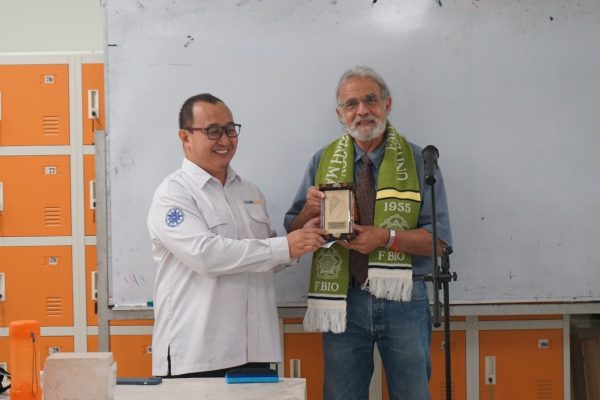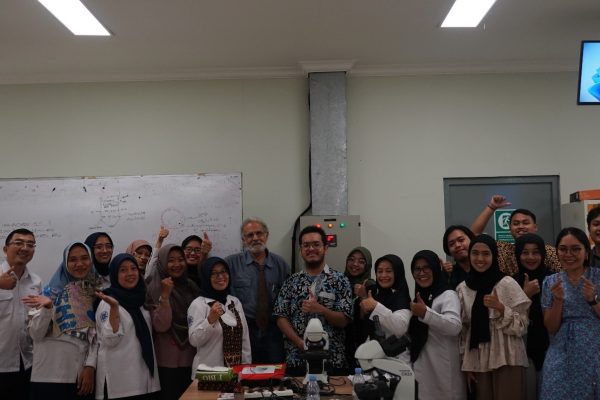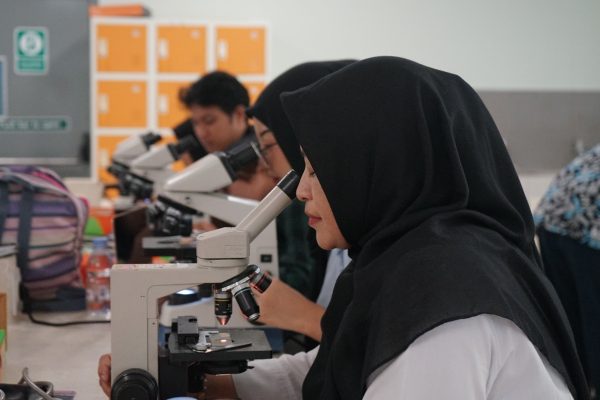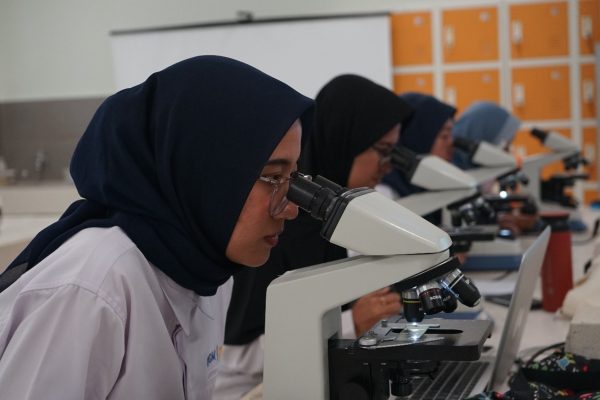Yogyakarta, 29 January 2024 – Faculty of Biology UGM held training entitled “Transmitted Light Microscopy” guided by Prof. Jorge H. Aigla, M.D. from St. John College, New Mexico, United States who attended along with Sureena Pohsa from Thailand as a research assistant. The training was carried out via hybrid in the Teaching Laboratory, Building B, Faculty of Biology, Gadjah Mada University and via zoom meeting, which was attended by lecturers, laboratory staff, students, and several high school teachers in Yogyakarta.
This activity was opened by the moderator, Tyas Ikhsan Hikmawan, M.S., Ph.D. which was continued with remarks from the Vice Dean for Research, Community Service, Collaboration and Alumni Affairs, Dr. Eko Agus Suyono, M.App.Sc.
“The microscope is one of the vital laboratory tools used in biological research, so it is hoped that this training can enhance participants’ experience and abilities in using this tool,” said Dr. Eko in his speech, Monday (29/01). He also expressed his welcome greeting to Prof. Jorge and Sureena as speakers at the training.
Prof. Jorge started the training with material related to the basics of using a microscope and the important aspects of using it to produce high quality image data. Aspects such as magnification, resolution (image detail) and contrast are crucial points for getting maximum object capture. Prof. Jorge emphasized that the use of a microscope must maximize the function of each part, such as the use of the objective lens, ocular lens, condenser and so on to minimize errors and less than optimal final results.
In the next session, Prof. Jorge guides the practice of observing at various magnifications including the use of oil immersion in high magnification observations. He emphasized again that the use of a microscope is basic, especially for biological research, but often basic knowledge such as recognizing lens types and their functions is not given enough attention.
This training is expected to provide comprehensive understanding and experience for participants, especially to improve laboratory and research skills. This activity is also part of the Faculty of Biology’s contribution to sustainable development goals (Sustainable Development Program; SDGs) especially in the development of inclusive education (SDG 4) through sustainable collaboration and cooperation (SDG 17).







